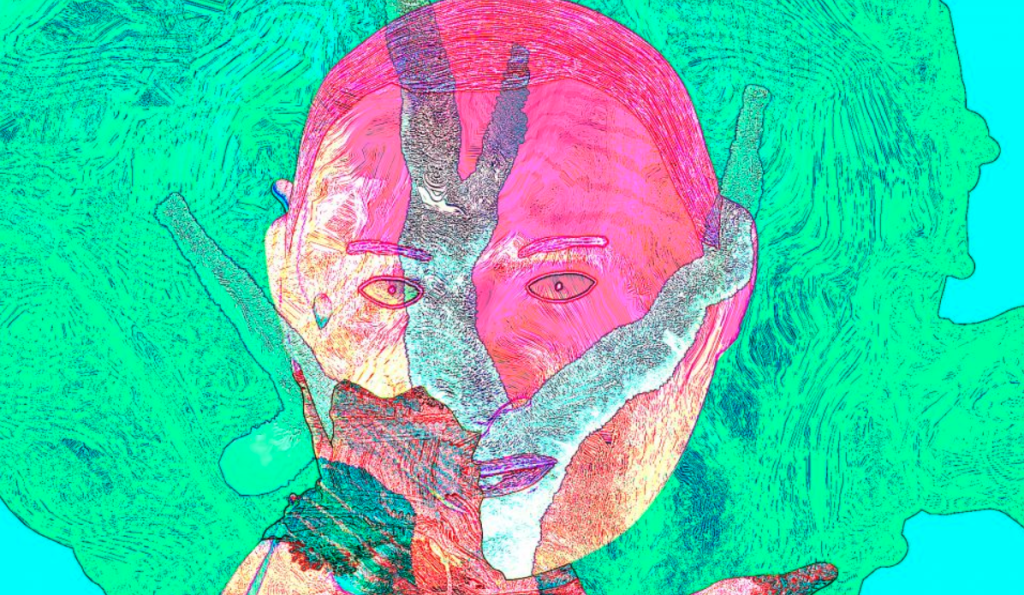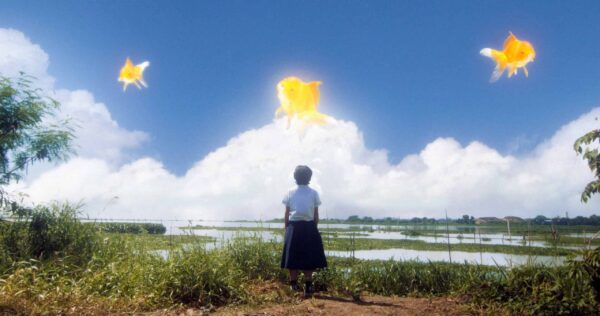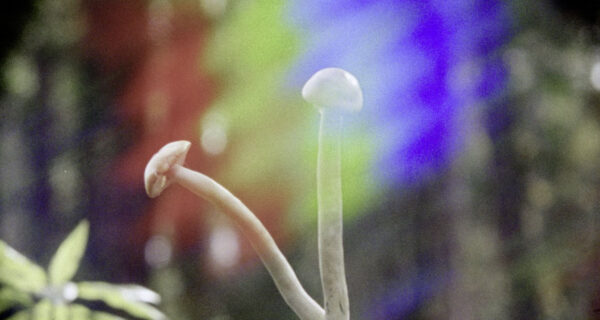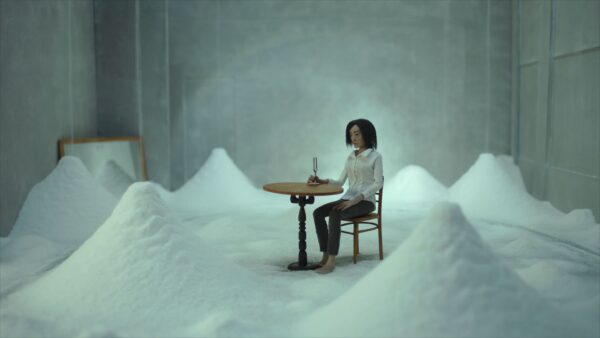Squared Freedom
Vadim on a Walk
Sasha Svirsky’s latest short serves a plot with a rebellious touch and bitter conclusions, conceived by an artist who not just thinks but also lives out of the box.

A human being locked inside a box, suffering anxiety attacks caused by the single thought of having to come out into the big, hostile world: one can hardly think of a more eloquent metonymy for the ubiquitous post-lockdown pandemic state of mind that humankind is currently experiencing, without pointing at it explicitly. Perhaps, many of us could identify with this awkward mood, mingling the excitement of the forthcoming freedom with the sudden fear that the insanity of the world out there will swallow us again. Тhis might be the best time to watch Sasha Svirsky’s latest short animation Vadim on a Walk, which premiered at this year’s Berlinale and is currently part of Short Waves Festival’s international competition, as it portrays pictorially the ambiguity of those feelings.
However, the instant association with the 2020 lockdown and its mental consequences is rather a random match since the short treats more and wider topics, such as the challenge of leaving one’s comfort zone and the impossibility of maintaining a free spirit in an only superficially civilised society which otherwise follows the laws of natural selection. Stuck inside a tight square space for so long (unable to remember how long exactly), the greyish protagonist Vadim (resembling a computer game character in his appearance, voice and gestures) concludes that “even my facial hair hasn’t grown inside”—emphasising how hermetic has been the cocoon he has been inhabiting so far. But something has irreversibly changed, and he needs to leave his suffocating, yet protective, cell.
A pile of questions on the dangers beyond the transparent walls starts dizzying his mind and comes out of his mouth, accompanied by zooming frames and rapid editing that produce an alarming sensation. Out of the box, his body changes by taking different shapes, as if testing his ability to make free movements in a free space, although the square geometry is still chasing him. Colour gets introduced to the film’s palette too and after a short happy stroll through a bright pink-green area and trees with crowns made out of squares (again), Vadim metamorphoses into a jumping gazelle that will soon meet its lion—both turning into a metaphor for the power relations between the free spirited and the rules establishers; employees and employers; individuals and institutions.
“Is there anything more natural than the power of the powerful over the powerless?” is probably the most memorable phrase in Vadim on a Walk. In the neoliberal world, where values have primarily economic dimensions, God has been replaced by the employer since he’s paying the bills. He is seen as a natural legislator who established rules and “normality”. Naturally, by following the logic of the unsatisfiable market. Thus, in a short time and after a “constructive” whipping from his boss, Vadim feels the urge to return to work to do what he ought to. The “ought to” command, it seems, is what puts him back in shape, what brings meaning into his life. Tossing and swinging while undergoing a constant reshaping of his body, suddenly Vadim has four arms and four legs, tools for executing double the workload and multitasking what is demanded, to come back to the formative box again, grey and focused, with an undistracted mind. And protected again. Game over for the free spirit trial.
Such a plot with a rebellious touch and bitter conclusions could only be conceived by an artist who thinks and lives out of the box to grasp the surrounding life and conduct a thorough reflection. Sasha Svirsky, a self-taught, highly productive, and unique in his style, is a contemporary Russian animator who lives in a small village and leaves it only to travel to the most significant world festivals with his films. He does it for real. With the help of his wife Nadezhda Svirskaya, the producer of most of his films, he piled up an impressive body of work of about twenty films in thirteen years — stylistically and philosophically inspired by the anecdotal caricatures of the Saint Petersburg’s art group Mitki, Paul Klee’s geometrical paintings, collages and experimental film.
Since his first comic-like animation, Bandits (2008), and the imaginative anti-utopia Mirs-Pirs (2009), Svirsky is interested in characters looking for their way around the system and inhabiting parallel, sometimes delusional worlds. Their ambiences are often spiced up by Alexey Prosvirin’s atmospheric compositions, who is Svirsky’s friend and the usual soundtrack collaborator for his work. Produced by the legendary Andrey Krzhanovsky’s Shar Studio, Vadim on a Walk mirrors our overly protective, strictly controlled, hierarchical societies that limit human frivolity in favour of robotic servility. Its eclectic 2D graphic aesthetics, unpredictably interrupted by collage-resembling images, remind one of a computer game where the protagonist’s mission is not to advance towards further goals but to return to the starting point. So that the cycle for the powerless could go on as the powerful decided for them.





There are no comments yet, be the first!